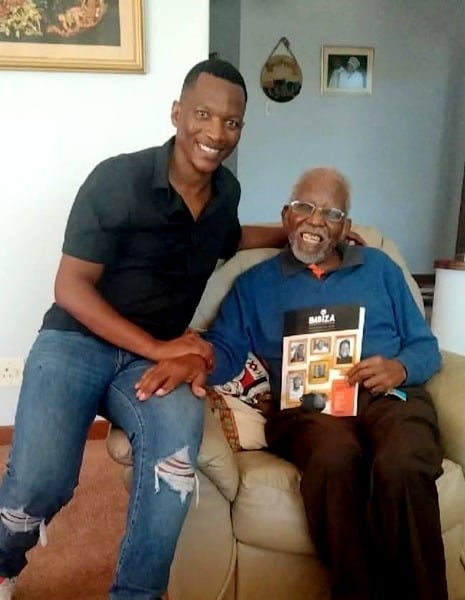
Siphiwo Mahala wrote on Facebook:
I woke up to the news that Peter Tshobisa Mtuze, one of the foremost proponents of isiXhosa literature, had shuffled off this mortal coil. Mtuze served in many roles throughout his life, including as a court interpreter, broadcaster, ordained priest, and professor of Xhosa literature. He began writing in the 1960s and went on to publish more than thirty books. His body of work cuts across genres — novels, short stories, drama, essays, poetry, biographical writings as well as translations.
I was always an ardent admirer of his writing, and I have often cited him as one of my major influences, particularly in the short story genre. His short story collection, amathol’ eendaba (1977), remains one of my all-time favourites. During my tenure as Head of Books and Publishing at the Department of Arts and Culture, his seminal novel uDingezweni (1971) was among the first isiXhosa texts we selected for the Reprint of South African Classics project.
My personal relationship with him deepened around 2008, when I was asked to review the manuscript of a new novel he had submitted. I was not impressed. I felt that he was taking his readers for granted, and I did not hold back. I criticised everything, from the title, the characters, the entire imagery. A few months later, the publisher returned the revised manuscript to me, and I was bowled over. He had come back with vintage Mtuze and more. I was so moved by the improvement that I applauded him for his openness to criticism and for delivering beyond expectation.
When I later bumped into him in Makhanda, I asked how the manuscript was coming along. He was startled, wondering how I knew about it. When I told him I had peer-reviewed it, he embraced me warmly, exclaiming, “Yho, mfondini, ndatsho nje ukuba ndidibene nenye ingwenya apha.” From the ferocity of the critique, he felt he had met his match and decided to rise to the challenge. That novel was eventually published in 2014 under the title Iingada Zibuyile Endle, and it went on to win him several awards.
In 2022 the University of Johannesburg honoured him with a celebration of his life and work. Following that event, I wrote a tribute published in the fifth edition of Imbiza, which remains freely available online. As soon as the issue came out, I travelled to King William’s Town to hand-deliver his copies. That visit remains etched in my memory as one of the most special moments I’ve ever spent in the company of a literary giant. He used the photo we took that day as his WhatsApp profile picture until his last breath. For that, I feel eternally connected to him.
Special thanks to the Eastern Cape Department of Sport, Recreation, Arts and Culture for honouring him at the Eastern Cape Book Fair. I will continue to celebrate him, because PT Mtuze cannot die. His words live on.
(Click on the picture to download the magazine, Mtuze’s story starts on p20.)
See also:
Revisiting Bloke Modisane, from Sophiatown to Gaza: #2 On violence, on history


